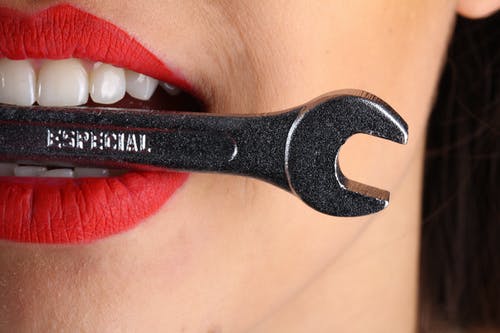How to Assess Your Risk Of Tooth Decay
Tooth decay is less common today than it was 100 years ago. This is partly because of advancements in dental procedures and also because more people have access to reputable dentists, such as this Alexandria dentist.
Of course, the fact that you are more aware of what needs to be done to look after your teeth also helps. It doesn’t change the fact that only 11% of adults have no tooth decay. There is still plenty to be done.
What Is Tooth Decay
Tooth decay refers to when the hard enamel on your teeth is damaged and bacteria are able to get into the soft inner part of your teeth. The moment the enamel is damaged you’ll need to take extra steps to helps protect it and give it a chance to heal. When the bacteria get inside your teeth a cavity forms. In the most extreme cases, the bacteria get to the pulp and nerves inside your teeth. This creates severe toothache and can lead to abscesses, bone damage, and even tooth loss.
The decay happens because bacteria in your mouth react with the sugar in the food you eat. This creates a white sticky substance that sticks to your teeth. It’s known as plaque. Bacteria in plaque react with sugar and create acid, this attacks the enamel on your teeth.
The only way to prevent tooth decay is to eliminate the plaque before it produces the acid that damages your teeth.
To reduce the risk of plaque you need to brush your teeth twice a day for at least two minutes at a time. Flossing daily can also help, as can using a mouthwash.
Assessing Your Risk
It’s essential that you adopt a good oral hygiene routine as this will help you to look after your teeth and keep tooth decay at bay. But, there are other factors that you should be aware of.
- Your Genes
There is little you can do about the genes you’ve been given but it is worth noting that some people are more genetically predisposed to tooth decay than others. Research suggests that if you have certain variations of the gene beta-defensin 1you’re more likely to develop tooth decay.
You can have your genes tested to find out if you have this gene. It’s especially relevant if your parents have high-levels of tooth decay.
If you have got a genetic predisposition then your dentist can offer fluoride treatments and sealants.
- Saliva
Saliva is very important. It keeps your mouth lubricated which helps to keep unwanted bacteria away. It also washes debris out of the teeth, reducing the risk of plaque building up.
If you suffer from dry mouth, which can be the result of medications, you’ll find it’s more likely that you’ll develop tooth decay. This is because the saliva won’t be able to keep washing the bacteria away from your mouth.
- Dental Check-Ups
People who have dental checkups once or twice a year are less likely to have a problem with tooth decay. This approach doesn’t reduce your risk of decay but it will ensure any issues are caught early and dealt with. Having fillings means you get to keep your own teeth for longer, that’s a good thing and a valid reason to visit the dentist regularly.
- Diet
Your diet can also influence your risk of contracting tooth display. Most processed foods are high in sugar which is a problem for the bacteria in your mouth. While you can’t avoid sugar completely, you can restrict your intake. This will reduce the risk of your teeth decaying.
It’s not just food that contains high quantities of sugar Sodas and fruit juices also have a lot of sugar in them which can cause you an issue with your teeth.
Final Thoughts
Tooth decay is not an exact science. It’s difficult to know exactly who will be affected by tooth decay and who won’t. However, regardless of your risk factor, you can take steps to reduce sugar in your diet and decrease the likelihood of you contracting tooth decay.
Brushing daily and seeing the dentist regularly remains the best way to prevent cavities or to deal with them effectively.
Don’t forget, leaving a cavity only leads to more issues as the cavity will get larger, you’re likely to develop an abscess, and may even lose the tooth. Your dentist can help you to limit the effects of tooth decay and retain your own teeth into old age.

